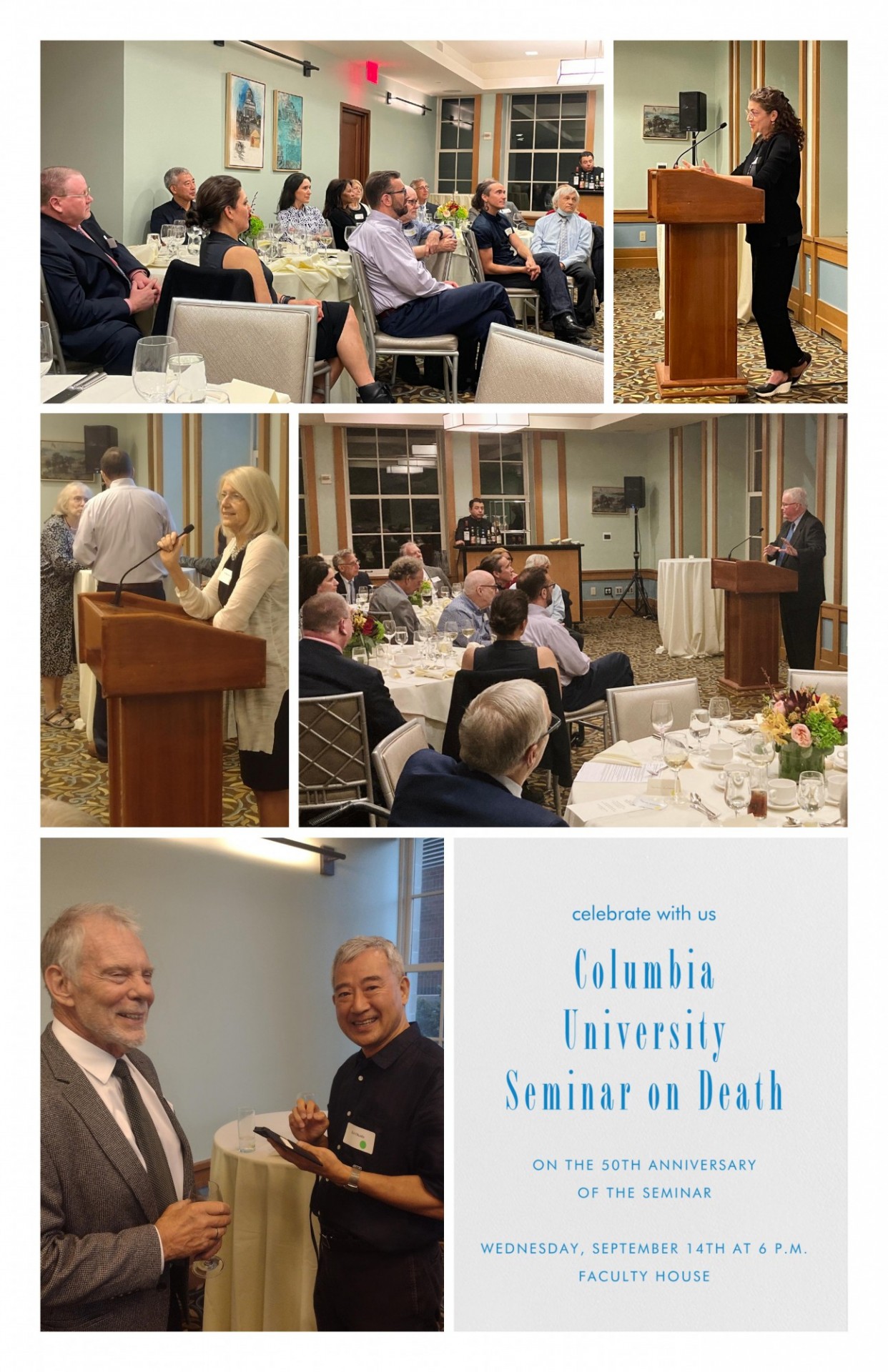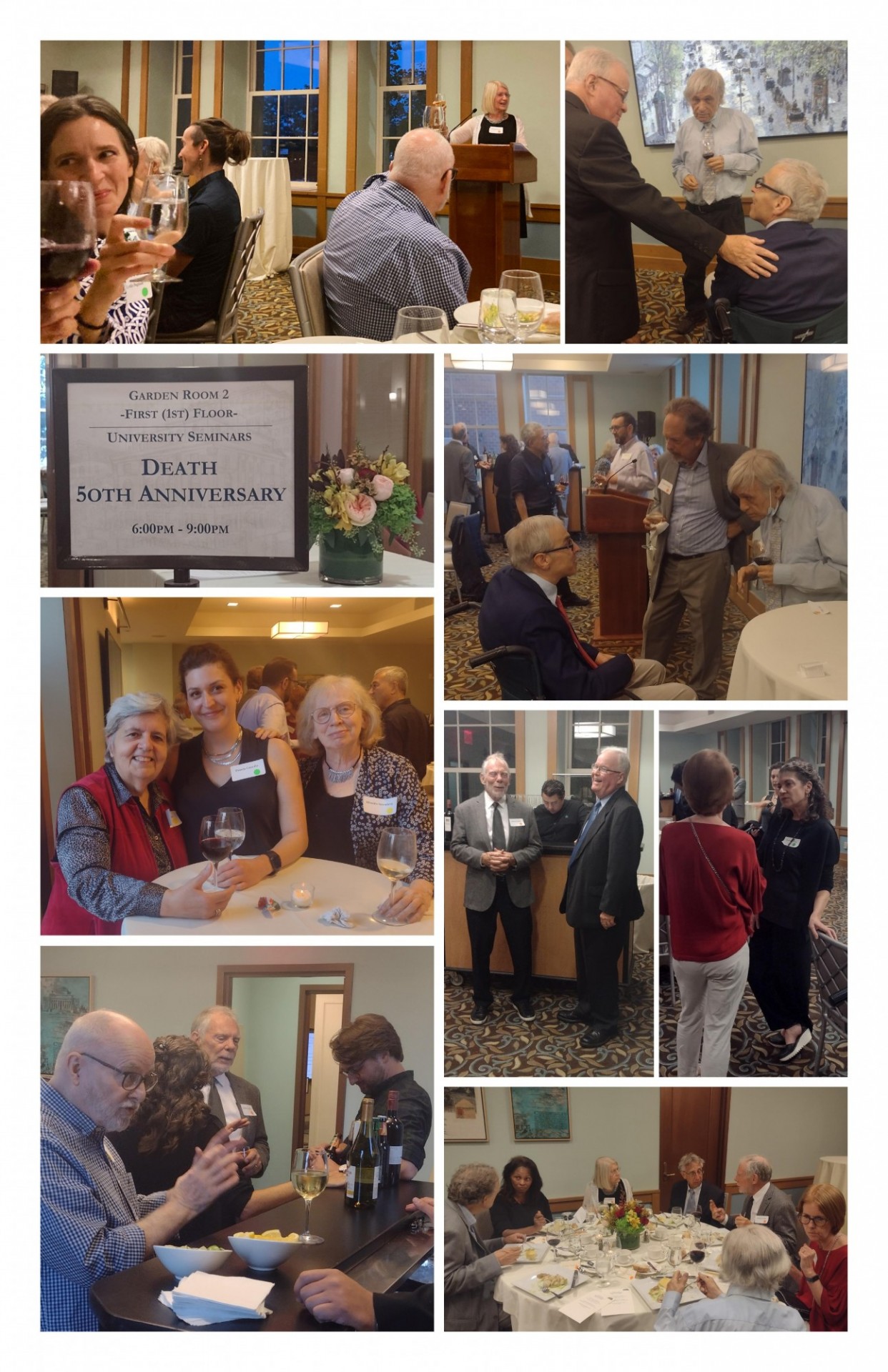Remarks by Seminar Co-Chair Karla Rothstein, September 14th, 2022
I am so grateful to the team behind our Seminar’s Oral History Project. This invaluable endeavor was instigated and led by John Kiernan with Christina’s stalwart guidance, scaffolded by Joe Dauben and Rhonda Sternberg, and supported by two of our rapporteurs, Zac and Nikita. It is both wonderful and worthy that this chronicle of the first 50 years of the Seminar will reside in Columbia’s archive for future scholars. For me personally, it offers a crucial opportunity to get to know our predecessors and glean some of what motivated the Seminar’s evolving discourse. We have the great ongoing honor of building on this legacy of critical Inquiry.
On behalf of the current members and associates of the Seminar, I want to thank Christina for her brilliant and generous leadership. I am delighted to collaborate, to continue to learn from, and to share the role of Chair with her.
When Christina first reached out to me in 2010 or ‘11, despite the fact that I had done my graduate work at Columbia and had been teaching at GSAPP for at least a dozen years, I had not heard of the University Seminars. As someone who has always both practiced professionally and taught, I remember being intrigued by the structure and the autonomy with which the University Seminars operate – the mission to bridge academia and practical knowledge really resonated with me. This is an incredible intellectual initiative, and we are so fortunate to have the responsibility of fulfilling it through our regular internal discussions, the guests that we welcome, the symposia that we craft every few years, and the publications that we produce.
Structurally, of course, we’ve spent most of the past two and a half years gathering online, treading cautiously into hybridity in our final meetings last Spring, where we agreed that we’d absolutely prefer to corporeally occupy the space of our conversations in one another’s company. And it has been a delight to share this uniquely convivial evening with you.
As the University Seminar: Death, I think at a milestone occasion like this, we would be remiss not to recognize the societal costs of the almost unfathomable deaths that define our time, those deaths that are occurring beyond the anticipated biological consequence of our mortality: a global pandemic (with over 6.5 million attributed deaths to date), mass shootings (now averaging two per day in the U.S.), so many senseless deaths instigated by racial and gender intolerance, the war in Ukraine, the ongoing War on Terror, the occupations of Tibet, Syria, Darfur; flooding in Pakistan as just one of the escalating environmental disasters; we could each go on and on. So while death is natural, personal, spiritual, and increasingly technological, politics and policies at so many scales are implicated as well.
During our internal discussion in May regarding Contemporary Burdens of Dying, Disposition, and Grief a shared aspiration was formulated – to have our Seminar be more impactful. We’ll need to decide together at what scopes and scales we hope to aim. But I am heartened that as a group we share a sense of responsibility toward raising consciousness and instigating shifts in the narrative.
Interdisciplinarity is our strength. And respectfully navigating our range of beliefs has always been a given. At a time when as a country there seems to be little that everyone can agree upon, I take comfort in the universality of our shared mortality – in life’s cyclical, verdant existence; in the commonalities and connections to the planet (that Bob Pollack also referenced in his lovely message to us). These realities are so much more significant and numerous than what divides us. There will always be death, but there is also resilience.
Here we can learn from Frederick Buechner, a theologian, writer, and storyteller, graduate of Union Theological Seminary and author of A Long Day’s Dying (1950) who himself died just last month. Buechner observed that one finds one's vocation (for him that meant the work that God intends, but I believe it applies to any good work) – he observed that one finds one’s vocation at the location where deep gladness meets the world’s deep hunger. Our world has many simultaneous deep needs, and we, in fellowship and research, have this space to continue the critical explorations that can only come through our intersecting vocations, together.
Thank you, each, for coming tonight; for your love of learning, and for your contributions to the ethical and imaginative potentials in the intertwined relationships of death and life.

